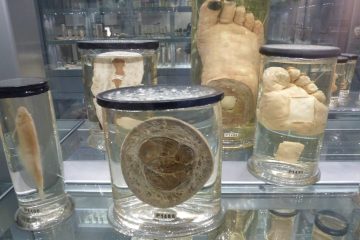

Inspired by David Hockney’s ‘Do remember they can’t cancel the spring’, we’ve been exploring spring throughout art history, from Boticelli to de Chirico, and from blossom to white dresses. Spring 2020 wasn’t cancelled, but blooming in canvases and outside our windows. As we look ahead to summer, we’re diving in one last time, and Landscape with the Fall of Icarus provides the perfect anti-climax to round us off.
As spring bleeds into summer and this series comes to a close, it’s the perfect time to think about anti-climax. Deliberate and cultivated, Brueghel the Elder’s Landscape with the Fall of Icarus is one of art history’s greatest, most stupefying, most mystifying let-downs.
There’s your tragic hero. Little more than a footnote in his own epic tale
Springtime. A farmer directs a horse pulling a plough. Sheep graze. The shepherd minding them stares off into the sky. Ships with great billowing sails are stealing out of the bay, towards the sunset and distant lands. An angler sits by the water casting a line. Where the hell is Icarus? Where are his waxen wings melting when he flies too close to the sun?
Direct your eyes a little up from the angler and you’ll see a pair of legs flailing about in a dark patch of sea. There’s your tragic hero. Little more than a footnote in his own epic tale.
ArrayIf a title is a kind of promise, and what we’ve been promised here is the climactic moment of the most famous story of hubris the world has ever known, then Breughel has shat all over it.
Speaking of which: a recent infrared scan shows that in the left-hand side of the painting (where there appears to be a man lying down, possibly dead, in a bush) previously included a figure defecating there. Ultimately opting for less vulgar means, Breughel achieves the same effect of subverting his own conceit.
If a title is a kind of promise… then Breughel has shat all over it
What’s engrossing about this painting is how Breughel breaks the promise of his title by making new ones. Ploughman, fisherman, shepherd — all of them are pointedly looking away from Icarus. It directs our attention elsewhere, too, but for now, we’re not sure where. Likewise, the plough wheel acts like an axle, around which the scene — and our attention — turns and returns, as the plough makes its way, somewhat morosely, down a slope.
Also diverting are the ships speeding in the opposite direction of the fallen hero. If their sails caught any more air they would be flying (and how do you like these wings, Icarus?). The strangest wink-wink-nudge-nudge is that innocent, pastoral sunset. How is Icarus supposed to have flown too close to the sun if it’s that far sunken over the horizon? It makes you think those splashing, farcical legs could be anyone’s.


Landscape with the Fall of Icarus asks: what’s interesting? By tugging our attention this way and that, we wonder if the hero’s fall necessarily is more interesting than the workers going about their daily lives?
What to make of the high level of disinterest they show towards their fellow man’s suffering? Would we be just as disinterested ourselves, just as distracted by the ordinariness of the task at hand and the trundling aspirations that fill each normal day?
There’s comfort in the fact that the greatest failures in our lives are a footnote in someone else’s
None of us are likely to fly too close to the sun, and when monolithic myth gets translated for the humdrum of life, ‘hubris’ looks more like walking all the way to the shop only to discover it’s already shut. Still, there’s comfort in the fact that the greatest failures in our lives are a footnote in someone else’s.
All those plans you had for spring, and how many of the promises you made to yourself did you keep? How many did you break? Brueghel would have you laugh it off. And he’d make you do so not with a bang, but with a fizzle.


